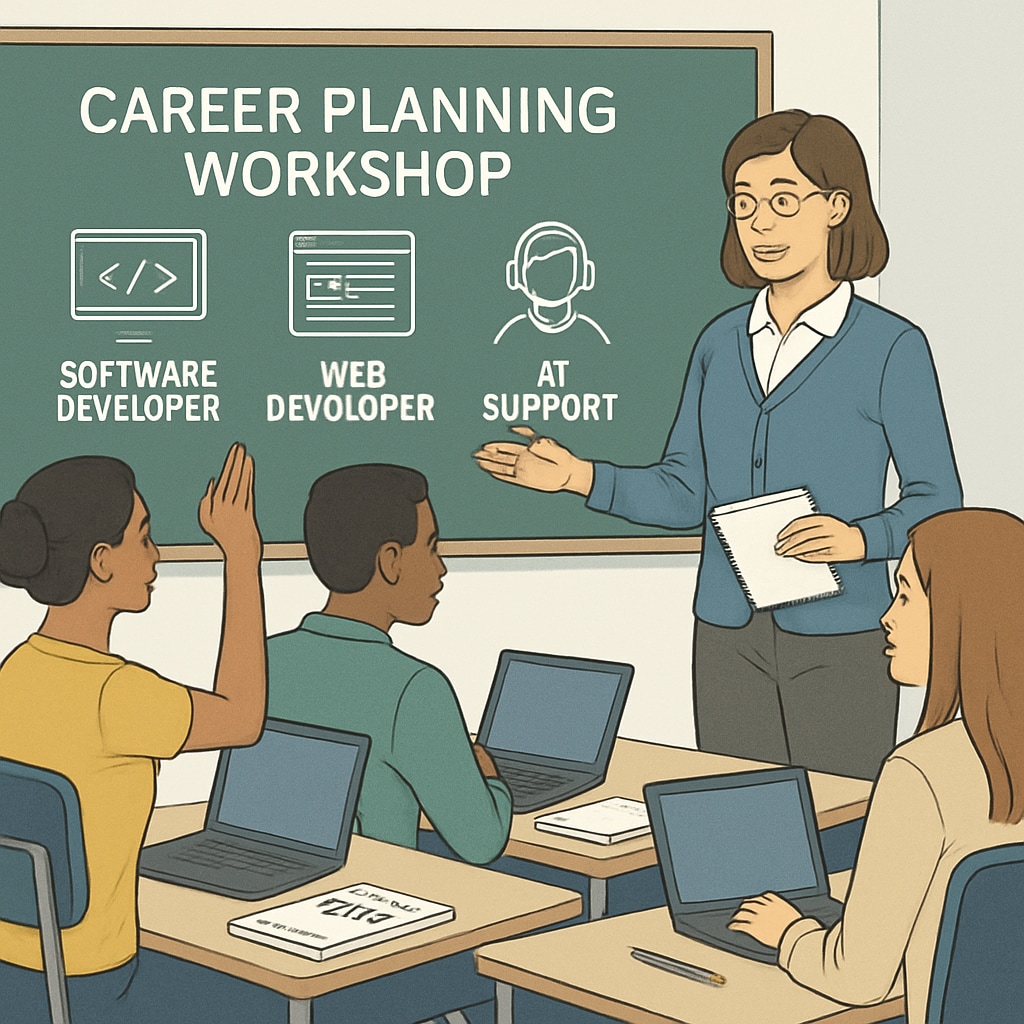Choosing the right college major and career path is one of the most important decisions K12 students will face. With fields like IT booming in demand, understanding career options early can empower students to make informed choices that align with their interests and abilities. This article delves into how educators and parents can support students in navigating career choices, IT majors, and college pathways effectively.
Understanding the Importance of Career Awareness
Career awareness is the foundation for informed decision-making. It involves helping students explore various industries, roles, and skills required for success in each field. For example, the IT sector offers diverse opportunities, from software development to cybersecurity, requiring both technical expertise and problem-solving skills. By exposing students to these possibilities early, they can begin identifying areas that resonate with their passions.

Educators can implement the following strategies to promote career awareness:
- Organizing career fairs featuring professionals from various industries.
- Providing access to online career exploration tools and resources.
- Inviting guest speakers from fields like IT to share their experiences and insights.
As a result, students develop a clearer understanding of the skills, education, and personal interests required for specific career paths.
Skill Development: Preparing for IT and Other High-Demand Fields
In addition to career awareness, skill development is crucial for students aiming to succeed in competitive fields like IT. Technical skills such as programming, data analysis, and cloud computing are highly sought after, but soft skills like teamwork, communication, and adaptability are equally important.

Educators and parents can support skill development through:
- Encouraging participation in STEM-based extracurricular activities.
- Providing access to coding bootcamps or online courses in IT-related topics.
- Promoting problem-solving and critical thinking exercises in classroom settings.
These experiences not only enhance technical capabilities but also foster a growth mindset, which is essential for lifelong learning.
Practical Experiences: Bridging Education and Real-World Applications
Practical experiences play a vital role in career planning, as they allow students to apply theoretical knowledge in real-world scenarios. Internships, job shadowing, and project-based learning are excellent ways for students to gain hands-on experience and understand the day-to-day responsibilities of specific roles.
For example, students interested in IT might benefit from:
- Internships with tech companies to learn about software development processes.
- Hackathons that challenge them to solve real-world problems using technology.
- Collaborating on open-source projects to build a portfolio of practical work.
These experiences not only enhance their resumes but also build confidence in their chosen paths.
Guiding Students Toward Informed College Decisions
Once students have a solid understanding of their career interests and skills, the next step is choosing a college major that aligns with their goals. For IT-focused students, majors such as Computer Science, Information Technology, and Data Science offer direct pathways into the field. However, interdisciplinary options like Business Analytics or Digital Media can also be valuable depending on their interests.
To guide students toward informed decisions:
- Encourage them to research colleges and universities with strong programs in their chosen fields.
- Suggest they connect with current students or alumni for firsthand insights.
- Help them assess their strengths, weaknesses, and long-term aspirations.
By combining career awareness, skill development, and practical experiences, students will be better equipped to choose majors that align with both their personal ambitions and market demands.
Conclusion
Helping K12 students navigate career choices, IT majors, and college pathways requires a collaborative effort from educators, parents, and mentors. Through intentional career awareness, targeted skill development, and hands-on experiences, students can make informed decisions that set them up for success in high-demand fields like IT. By empowering them to explore their interests and abilities, we can ensure they are prepared to thrive in their future careers.
Readability guidance: This article uses short paragraphs, lists, and transitions like “as a result” and “for example” to enhance readability. Active voice is prioritized, and technical terms are explained where necessary.


